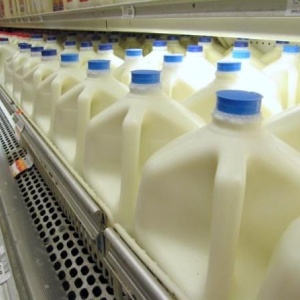
This paper published in Marketing Science finds that small price differences at the point of purchase (a so-called excise tax) can be highly effective in shifting consumer demand from high calorie to healthier low calorie alternatives.
The study argues that because low income consumers are particularly responsive to small price differences across products, and since they are the ones who disproportionately suffer the consequences of obesity, even smaller changes in price can have great effects on consumer behaviour and in turn obesity.
The study contributes to the discussion on whether a fat or sugar tax would be more effective to reduce obesity, and it uses a quasi-experiment method to investigate the effects of a hypothetical fat tax on milk in the US. The study authors examine purchases at a number of different supermarkets in regions where milk is priced differently depending on the fat content.
Looking at consumer behaviour changes, the paper investigates whether people would switch to lower fat milk for a price difference as small as 15 cents per gallon (about 2.5 pence per litre) and it finds that even this small change causes a significant shift away from whole milk to lower-fat options. In the regions where the prices across milk types are equal, people are shown to more often choose whole milk. This trend is stronger in areas with lower incomes.
The recommendation by the authors is to introduce a fat tax as an excise tax (reflected in the shelf price at the point-of-purchase, rather than imposed as a post-purchase sales tax) since this increases the chance of it influencing the purchase decision process. In addition they argue that the best option is to create a selective taxation mechanism designed to induce substitution within a narrowly defined product category (e.g. baked versus fried chips). They argue that rather than to discourage consumption of the category as a whole, this has the additional advantage of mitigating the regressive nature of food taxes (that people with lower incomes tend to spend a much larger percentage of their budgets on unhealthy goods than wealthier people do) since some options within a narrowly defined product category will be made less expensive.
Abstract
Of the many proposals to reverse the obesity epidemic, the most contentious is the use of price-based interventions such as the fat tax. Previous investigations of the efficacy of such initiatives in altering consumption behavior yielded contradictory findings. In this article, we use six years of point-of-sale scanner data for milk from a sample of over 1,700 supermarkets across the United States to investigate the potential of small price incentives for inducing substitution of healthier alternatives. We exploit a pricing pattern particular to milk in the United States, whereby prices in some geographical regions are flat across whole, 2%, 1%, and skim milk; whereas in other regions they are decreasing with the fat content level. The prevailing price structure is determined at a chain and regional level, and is independent of local demand conditions. This exogenous variation in price structure provides a quasi-experimental set-up to analyze the impact of small price differences on substitution across fat content. We use detailed demographics to evaluate price sensitivity and substitution patterns for different socioeconomic groups. Results show that small price differences are highly effective in inducing substitution to lower calorie options. The impact is highest for low-income households who are also most at risk for obesity. Our results suggest that a selective taxation mechanism that lowers the relative prices of healthier options, such that those price changes are reflected in shelf prices at the point-of-purchase, can serve as an effective health policy tool in the efforts to control obesity.
Citation
Khan, R., Misra, K., Singh, V., (2015). Will a Fat Tax Work? Marketing Science, 150720091204005 DOI: 10.1287/mksc.2015.0917
You can read the full study here (requires journal subscription) and see further coverage in Science Daily here.
You can also find further related resources in our Research Library in the categories on milk and food and agriculture policy, food taxes, fat tax, obesity/overweight, governance and policy.







Post a new comment »